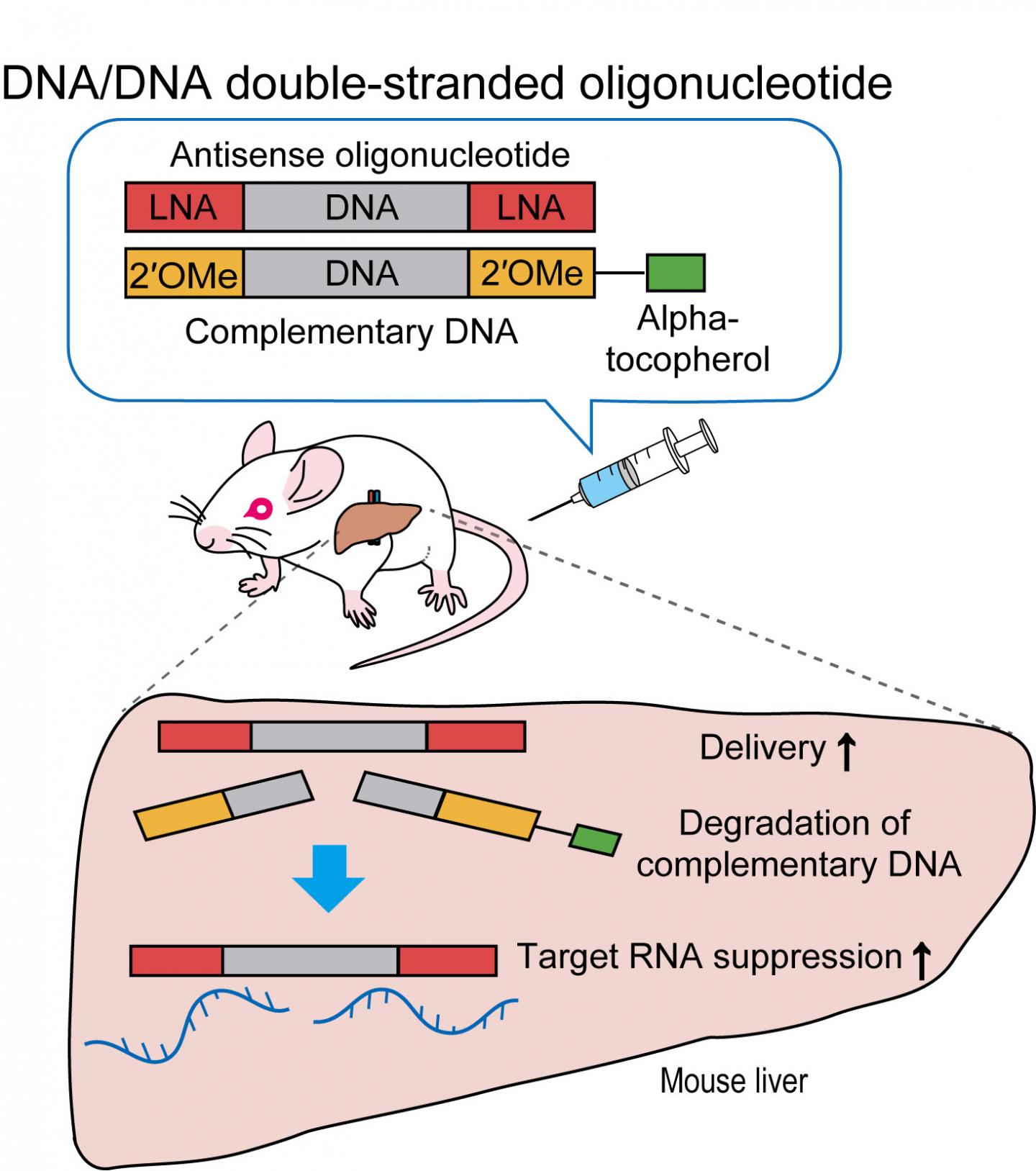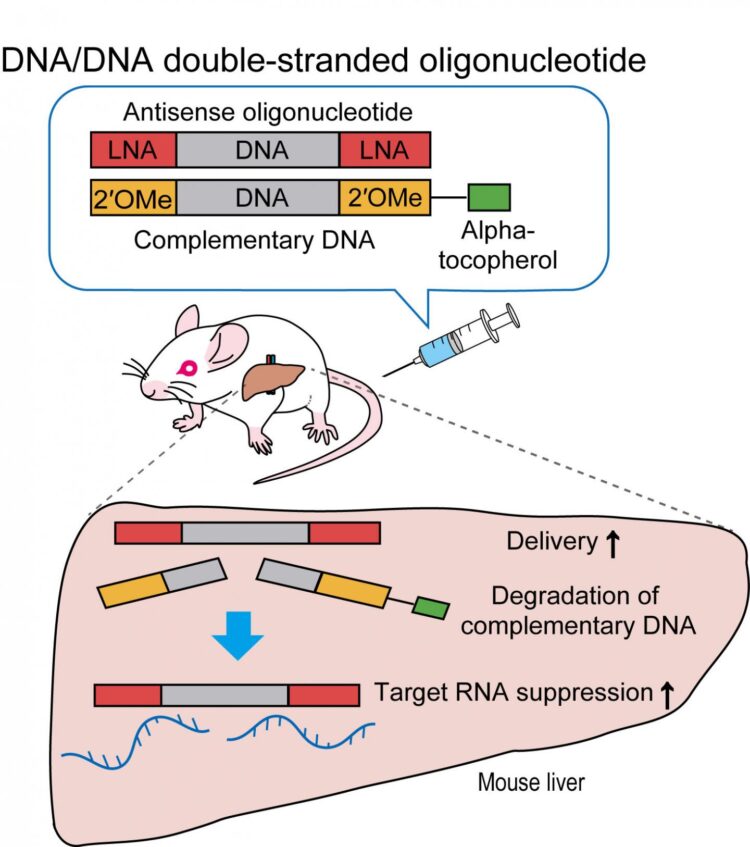
Credit: Department of Neurology and Neurological Science,TMDU
Researchers from Tokyo Medical and Dental University (TMDU) and Ionis Pharmaceuticals, USA, report a modification wherein replacing the RNA strand of a heteroduplex oligonucleotide with DNA may enhance the efficacy of antisense oligonucleotide-based drugs
Tokyo, Japan – Antisense oligonucleotides (ASO) hold great promise for pharmacotherapy. Now, researchers at Tokyo Medical and Dental University (TMDU) and Ionis Pharmaceuticals, advancing their earlier work on a heteroduplex oligonucleotide (HDO) model, have demonstrated augmentation of ASO-based drugs by replacing the RNA strand with DNA.
Many drugs work by modifying specific disease-related proteins. Unfortunately, they may also affect non-targeted proteins causing side-effects that downgrade their safety and clinical applicability. Nucleic-acid therapeutics employs an emerging class of drugs including ASOs that target disease at the genetic level by suppressing the expression of pathogenic proteins. By modifying targets hitherto undruggable by conventional pharmacotherapy, they offer potential for treating intractable diseases such as spinal muscular atrophy and Huntington disease, with several candidates in clinical use and more on the horizon.
ASOs are synthetic single-stranded molecules comprising a few dozen base pairs capable of regulating gene expression through binding to the “sense” strand of mRNA targets. Arranging nucleotides, the building blocks of genetic code, in an “antisense” or opposing order can suppress a specific RNA sequence and prevent production of harmful proteins.
The research team had earlier developed an HDO wherein the single-stranded ASO was hybridized to complementary RNA and conjugated with tocopherol. Toc-HDO(coRNA) proved more stable in serum, efficiently deliverable to target cells and more potent than the parent ASO. First author Yutaro Asami explains the rationale of the current study: “Since cellular uptake was mostly in the intact form and the parent ASO was released intracellularly, we proposed replacing the phosphodiester (PO) RNA of the complementary strand with PO DNA that is more stable and easier to manufacture.”
The researchers bioengineered a DNA/DNA double-stranded oligonucelotide: Toc-HDO(coDNA). The relatively low DNAse in serum would promote stability and the molecule would be activated intracellularly by DNase degradation. The efficacy of this molecular modification was evaluated using murine hepatocyte uptake assay, quantitative real-time PCR assay for RNA levels and fluorescence-based determination of hepatic ASO concentrations. “We could establish the efficacy of Toc-HDO(coDNA) on mRNA expression levels in comparison with parent ASOs of varied compositions,” claims Asami. “Moreover, we also elucidated coDNA strand structure-activity relationships and degradation kinetics in mouse liver cells.”
Senior author Professor Takanori Yokota looks into the future. “HDO technology promises personalized targeted therapy for several neurodegenerative and other intractable diseases. Our innovative molecular structural modifications, by enhancing clinical potency and safety, help enlarge the therapeutic toolkit on this versatile platform.”
###
The article, “Efficient Gene Suppression by DNA/DNA Double-Stranded Oligonucleotide In Vivo” was published in Molecular Therapy at DOI: 10.1016/j.ymthe.2020.10.017
Media Contact
Takanori YOKOTA
[email protected]
Original Source
http://www.
Related Journal Article
http://dx.





